ADVERTISEMENT
Christianity - Haiti Observer Blog
Christianity, Haiti Observer Blog. Read the following articles about Christianity
Christianity or Voodoo, which is more suitable for Haiti
Before I start talking about this topic, I want to make it clear that I am not taking any side. So, please do not think that I deserve "Pe Lebrun" for this.
So what is the issue?
Recently I finid myself in the middle of an argument between two Haitians with different views about religion. You probably said that this is nothing new. Actually, this one was new to me because the argument was whether Voodoo or Christianity was better for Haiti.
Here is the argument I heard in support to Christianity:
When Pope Francis said Christian Right Have Illness, Who comes to mind?
Can you think of anyone when Pope is calling right-wing, fundamentalist Christianity an "illness." Does the name "Pat" Robertson ring a bell?
If there is one thing that differentiate the new Pop from his predecessors is the way he preaches his message.His focus is fighting for economic equality. Pope Francis has shifted the focus of the Catholic Church to issues facing the poor and the sick, and away from anti-gay and anti-abortion that have dominated the Catholic religion
Like many other thing, Pope Francis does not seem to be impressed about Christian fundamentalism.
Haiti Constitution of 1807
Title I. Abolishes slavery, grants residents full citizenship rights, protects property, and administers the death penalty for murder.
Title II. Sets up organization of government, appointing Henry Christophe President and Commander-in-Chief of the military. Empowers him to appoint his successor, sign treaties, and declare war.
Title III. Establishes Council of State and its functions under the President. Creates an Office of the Budget, presided over by a Budget Finance Director.
Title IV. Budget Finance Director shall also handle administration of Navy and Interior.
Title V. Creates a Secretary of State responsible for all intra- and inter-departmental correspondence, preparation of official government documents, and co-signatory duties.
1801 Constitution of Saint-Domingue, Haiti
The Constitution of Saint-Domingue Haiti was signed in 1801 by Governor-General for Life Toussaint L'Ouverture, the ruler of Hispaniola before Haiti became a republic.
Title I. Refers to the colony of Saint-Domingue, the seat of cities and neighboring islands, subject to French rule. Sets up the divisions of departments, arrondissements, and parishes.
Title II. Abolishes slavery, introduces anti-discrimination rules, and employment rights.
Title III. Establishes Christianity as the official religion of the colony. Forbids men of God from organizing for political reasons.
Title IV. Protects the legal rights of spouses as long as they remain faithful and their children born of their sanctified or civil union.
From Hope to Faith within Christianity
Two ideas of hope exist: secular and religious
Secular hope, asserts whatever we desire we can achieve through faith in ourselves; the second that our desires will be achieved through our faith in God.
Religious hope issues from the promises given by God to His followers in the Bible, and to all believers in God's promises for us.
Secular hope and biblical hope begin with a yearning within us for something good and pleasurable. In secular hope, desires can be achieved through a belief system (are we worthy of this good); directed thinking (a plan put into action); and opening up to opportunities and possibilities (how we will achieve the desire).
Christianity And Judaism, Where Do Dead People Go?
Christianity has various beliefs when it comes to life after death but one thing followers have in common is that they believe in the afterlife.
Catholics, Baptists, Protestants and other Christians have been taught differently about afterlife beliefs. However, the existence of heaven, hell and purgatory are very common.
Many Christians believe that the fate of the departed depends on how he lived his life on Earth. According to the Catholic Church's teachings, people who led a good life tend to go to Heaven, where they will be with God, angels, departed relatives, and fellow believers. Those who did bad things on Earth and did not repent them are expected to get punished in Hell. Bad people who hurt others while they were alive suffer from hellfire for eternity. Another Catholic belief is the existence of purgatory, which is located in the middle of Heaven and Hell. This is where people who failed to confess their sins usually go to. Some believe that spirits that were sent there can move on to Heaven in time.
Our objective is to share with you news and information about Haiti and the people of Haiti. Traditions, habits and the way we were or grew are alive in this site. We highly recommend that you Subscribe to our Newsletter and also share with us some of the things that are memorable and made us unique people.

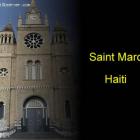 Saint Marc, Haiti
Saint Marc, Haiti 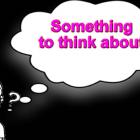 Something to think about
Something to think about 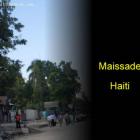 Maissade, Haiti
Maissade, Haiti 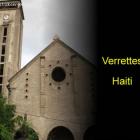 Verrettes, Haiti
Verrettes, Haiti 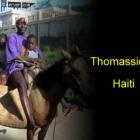 Thomassique, Haiti
Thomassique, Haiti